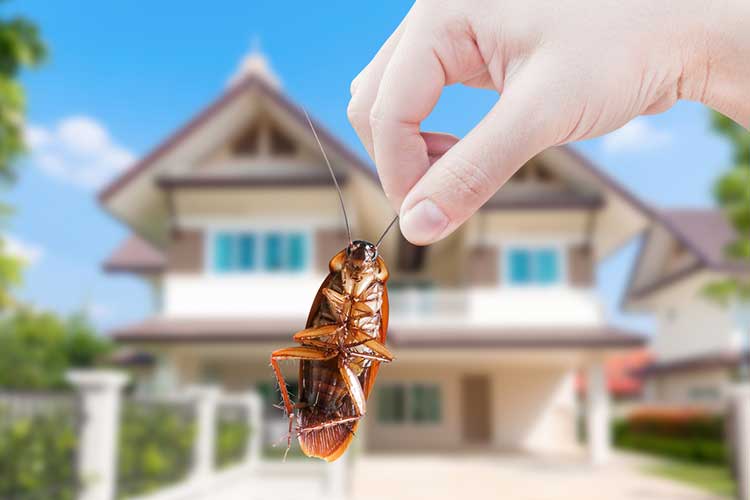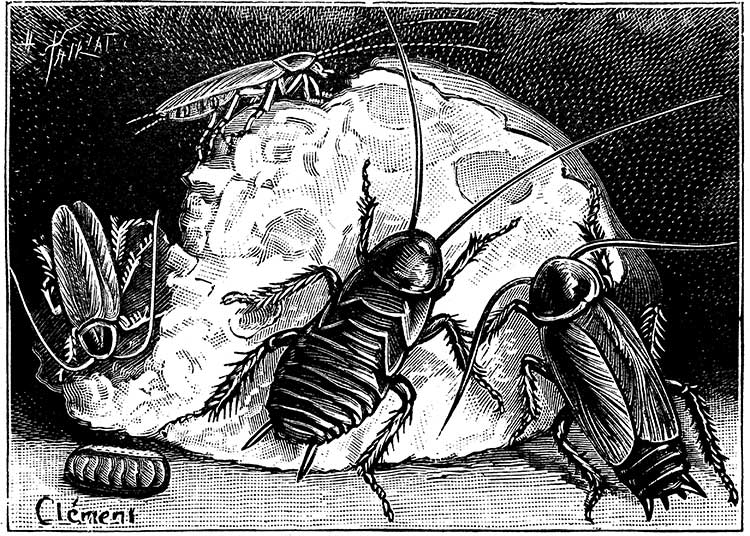How to Get Rid of Cockroaches
Last updated November 2024

Besides being repulsive, cockroaches may contribute to allergies, and they can deposit microbes on your food and utensils that could make you sick.
How to Stop Them
The best way to avoid and get rid of cucarachas is good sanitation.
You can also eliminate access to your kitchen and other likely infestation sites by applying caulk to seal cracks and other entry points.
Since cockroaches breed in freestanding water, eliminate leaks and pooling in kitchens, bathrooms, crawlspaces, outdoor areas, and basements.
Lay traps, either sticky ones (good to let you know where the bugs are coming from) or so-called “bait stations” (brands include Combat, Maxforce, and Raid). Sticky traps probably won’t solve an infestation, but baits might eradicate a small one. However, because bait stations dispense slow-acting poisons, results might take a week or so.
Boric acid is another effective roach killer. Use a bulb applicator to blow it into cracks and crevices, or lightly spread it in areas where humans won’t come into contact with it—behind window and door frames, on closet and bookcase shelves, on and behind baseboards and molding strips, and in basements, behind and under washing machines or in wall cracks. Keep the dust dry and undisturbed; if it gets wet, the area must be re-treated.
If your tidiness and entry-level pesticides don’t kill the horde, or you need immediate relief from a severe infestation, you (or a pro) can try a chemical insecticide spray or dust. Most contain pyrethroids, which agitate, repel, and quickly kill roaches. If cockroaches come into contact with pyrethroids, they’ll usually die quickly, but some learn to avoid touching it. And because the effectiveness of these poisons is short-term, your infestation may return when eggs hatch (roaches’ egg cases are often resistant to pyrethroids).
Regardless of what cockroach control method you use, it may miss some areas and require re-treatment—but probably just on a spot basis. In apartments, continual treatment may be needed if your neighbors are not as careful as you are. But once cockroaches are eliminated in a detached house, you can expect to be free of the problem—unless a new population is introduced.

Safety First
From an environmental and human safety standpoint, traps and baits pose few if any risks. And boric acid powder has very low toxicity to humans.
Pyrethroids decompose fairly rapidly—usually within a week or two indoors—and the concentrations found in aerosol cans are not very dangerous to people. Accidentally ingesting or breathing small doses of pyrethroid sprays usually isn’t dangerous to adult mammals—the pesticide is metabolized quickly. But even small amounts of pyrethroid sprays can have powerful immediate effects on kids, and large amounts will affect adults who inhale, ingest, or touch them. These chemicals are particularly dangerous when in concentrated form. Side effects of exposure range from mild (dizziness, fatigue, blurred vision) to severe (unconsciousness, muscle twitches, difficulty breathing, death).
Be safe: Whether you or a pro uses pesticides in your kitchen or bath, move the contents of drawers, cabinets, and pantries to another room, and don’t replace them until the spray is dry. Never use more poison than specified on the label.
Hiring Help
If you can’t (or don’t want to) tackle your roach problem, hire a pro. They have several advantages over you: greater ability to ID pests, more knowledge of their behavior, better equipment, access to stronger chemicals, and more experience.
You can either sign a contract for regular monthly or bimonthly treatments, or pay for them as needed. Because most infestations are solved with one visit, we recommend paying for individual treatments. Even if you have a severe infestation—or have American or brown-banded cockroaches whose eggs sometimes take 60 to 70 days to hatch, making one-shot elimination difficult—it probably will take only two treatments to debug your place. But because most companies allow you to sign up for an annual contract and cancel without penalty, compare the cost of one or two pay-as-you-go treatments with the cost of a few months of service under a contract.


